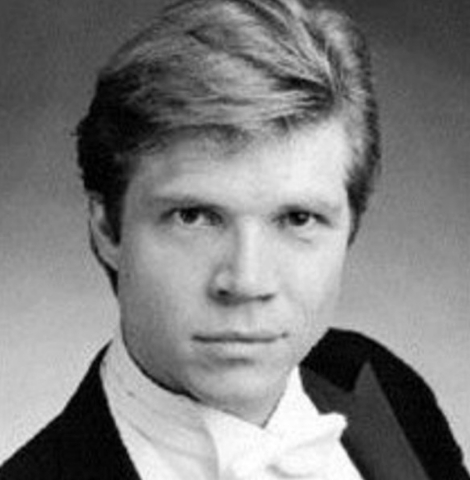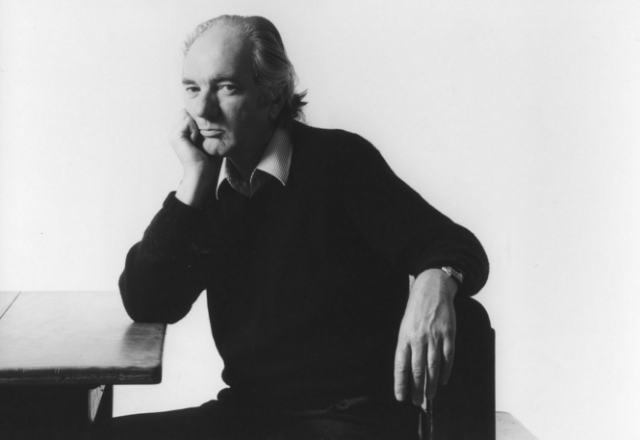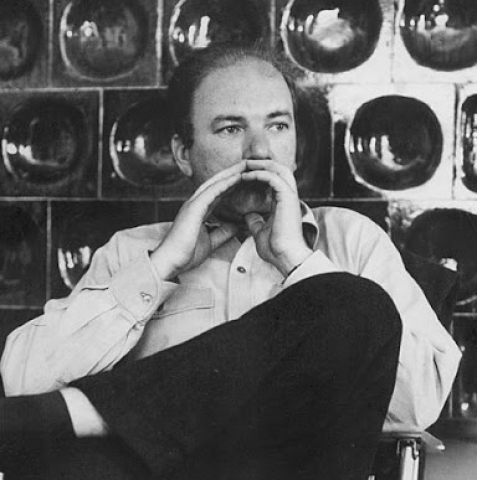the loser by David Lang at BAM
Thomas Bernhard Novel an Opera
By: Susan Hall - Sep 09, 2016
the loser
World Premiere
Libretto, music, and stage direction by David Lang
Adapted from the novel by Thomas Bernhard
Translated from German by Jack Dawson
Conducted by Karina Canellakis
Ron Gilfry, baritone
ConradTao, piano
Bang on a Can Opera
Lisa Dowling, double bass
Isabel Hagen, viola
Clariice Jensen,viola
Owen Weaver,percussion.
Lighting design by Jennifer Tipton
Set design by Jim Findlay
Sound design by Jody Elff
Costume design by Suzanne Bocanegra
Howard Gilman Opera House
Brooklyn Academy of Music
September 9, 2016
David Lang was commissioned by the Brooklyn Academy of Music to compose an opera. The remarkable chamber opera the loser is the result. Lang has lifted the author Thomas Bernhard's words, translated by Jack Dawson, intact. He can do this because the author composes with words very much as a musician composes with notes. Prose and music are both aware of rhythm, repetition and proportion. The constant dissonance between the tenses in the novel gives an air of uncertainty and ambiguity. Like the prose, Lang's music is peculiar and yet engaging. The single monstrous paragraph that makes the book is used to create a moving libretto.
The subject of the piece seems to be Glenn Gould, whose uncanny ability to separate voices is the same as Bernhard's ability to create many personalities in monologue. Madness is Bernhard’s central idea. We are all mad and the degree to which we accept this fact is precisely the degree to which we can embrace life. Bernhard and Lang laugh at this truism.
Bernhard wanted to be an opera singer and abandoned this quest. He knows what it means to give up music. Yet he finds humor in the pain, precisely because he finds the world crazy.
In Jim Findlay’s set, Gilfry stands atop a platform which rises from the center of the opera house. The audience sits in mezzanine, looking directly at him. Barely visible on the stage is Conrad Tao, a brilliant young pianist, playing Glenn Gould. As the opera progresses, light on the pianist increases in intensity, until the final denouement. Jennifer Tipton designs light’s nuance, including shadows of the central figure "I" cast on black screens on left and right theatre walls.
Bernhard proposes that the nameless "I" figure, his friend Wertheimer, and Glenn Gould all studied in Salzburg for two and a half months with Vladimir Horowitz. Horowitz never taught, but the mention of his name suggests someone who Gould, with all his gifts, could remarkably exceed. When he does, "I" and Wertheimer give up playing the piano and their instruments. There is no point in becoming a concert pianist if someone is immeasurably more gifted than you are.
Wertheimer auctions off his Bosendorfer piano. “I” actually hates the piano and only wants to paw it. "I" gives his Steinway to a local piano teacher whose nine-year -old daughter shows promise. The piano destroyed in an incredibly short period of time, a perfect outcome in “I”’s mind.
Lang is credited with the direction, which suits this tale perfectly. Standing on the platform, Rod Gilfry gave a stunning performance, at once stylish and expressive. He is able to deliver the monotonous words written by Bernhard and the plain notes provided by Lang, to suggest the underlying madness, an inhuman dissonance. Gould felt that a sense of discomfort and unease could grip the artist and the audience. Bernhard too believed in shaking up people.
Like the bass of the Goldberg Variations, whose performance Gould made famous, Lang composes a basso continuo, most often offered by Lisa Dowling on the double bass in droning repetitions and variations. This modern Baroque score filters Bach through Schoenberg and Webern who both Lang and Bernhard admire.
When Gilfry wraps his tongue around the name Gould gave Wertheimer, the loser, you understand why this imprecise translation was chosen. The ‘oooooh’ is deliciously extended. So too when Gilfry sings Gould’s name, in abundantly lush notes which contrast with the rest of the score.
The stars are aligned in the loser. Gould’s dedication is fanatical and inhuman. It can extinguish human identity. “I” thinks: If I could become the Steinway, I would make Glenn Gould irrelevant. I could wake up one day and be the Steinway and Gould all in one, all for Bach.” The idea of Gould was something Bernhard could love unconditionally.
Gilfry, the chamber orchestra, Conrad Tao as Gould and all aspects of the production serve to take us from the disappointment of a musical art abandoned to the merger of "I" in Gould, the piano and the music. This is not a classic piece based on progression, climax and reconciliation. David Lang brings us to a sublime merger with music as Gilfry goes black, merging completely with Gould, the piano and music.






